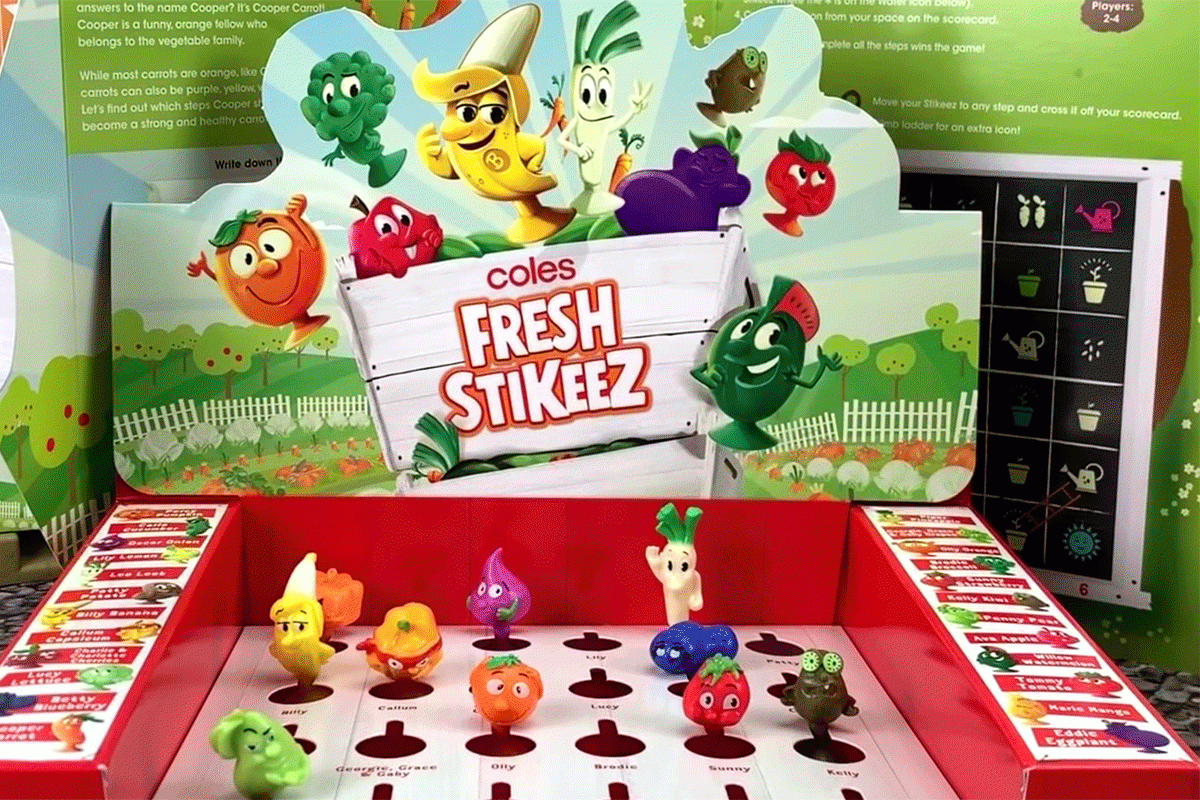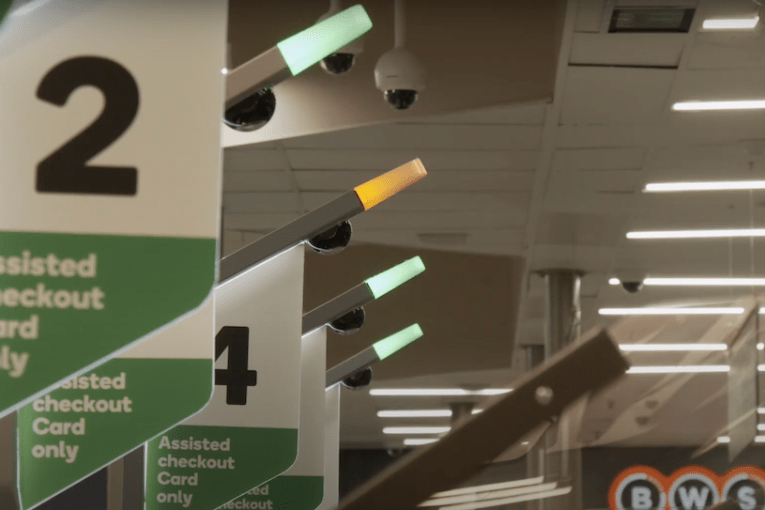Coles cashes in on collectables craze as Stikeez mirrors Little Shop success


Coles is cashing in on the collectables craze. Photo: Youtube
Coles has lifted its third-quarter food and liquor sales 2.1 per cent to $8 billion, boosted by its latest kid-focused collectables campaign.
The supermarket giant said on Monday its Fresh Stikeez campaign “drove high customer engagement” in the 12 weeks to March 24, mirroring the runaway success of last year’s Little Shop giveaways.
Following Little Shop’s success, Coles partnered with the Healthy Kids Association this year to release 24 mini fruit and vegetable figurines dubbed ‘Stikeez’.
The incentive of earning the food-themed mini figures helped lift Coles’ third-quarter comparable food and liquor sales 2.1 per cent on the prior corresponding period – once the timing of New Year’s Eve is accounted for.
Stikeez proved so popular that some of the “rare” figurines sold for more than $6000 on online auction sites. Replicas also popped up.
Coles said average basket size grew strongly over the period, underpinned by an increase in items per basket and price inflation in fresh categories.
“We delivered a solid outcome for the third quarter,” chief executive Steven Cain said.
“We know that customer expectations are changing faster than ever, and we are resolutely focused.”
Supermarket revenue rose 2.2 per cent to $7.27 billion, while liquor rose 0.9 per cent.
Collectable toys serious business for supermarkets

Coles’ Little Shop was wildly popular. Photo: Coles
Collectable toys have become serious business for Australia’s major supermarkets, following the surprise success of Coles’ Little Shop in 2018.
Shoppers went wild for the series of miniature household items last year, with some selling for thousands of dollars.
Brands aligned with the Little Shop promotion also gained, with sales of featured products, including White King toilet cleaner, Daily Juice and Messy Monkeys snacks, soaring by up to 50 per cent.
The craze also proved costly for rival Woolworths, with it blaming LittleShop for its own sluggish start to the 2018-19 financial year.
“Sales have been impacted by customers adjusting to … a competitor continuity program,” Woolworths group chief executive Brad Banducci said at the time.
Curtin University marketing lecturer Billy Sung said the success of supermarket collectables relies heavily on an “innately human” bias towards wanting to complete things.
“We looked at LittleShop and found that consumers were trying to complete the whole collection, and they were prompted to buy more things to collect the items because they were randomised and exclusive,” Dr Sung said.
Such promotions are designed to “restrict the availability” of items so that “you have to complete more transactions to collect all the items”.
-with AAP








